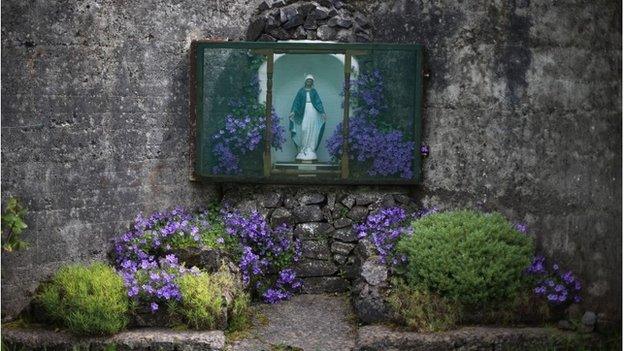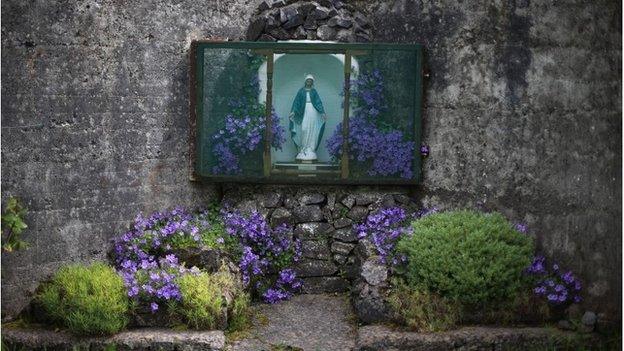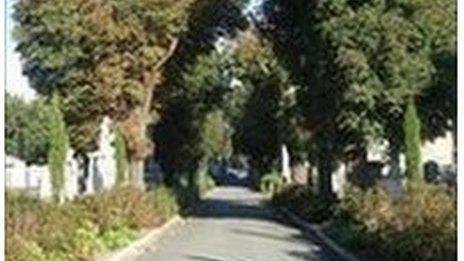Mari Tatlow-Steed speaks of childhood in Sacred Heart mother and baby home
- Published

The unmarked grave is in the grounds of a home which was run by the Catholic Church
Mari Tatlow-Steed lives in Philadelphia, but was born at the Bessborough home run by Sacred Heart sisters in County Cork.
She said there were two categories of children in the home.
"Children that were earmarked to go over to the United States for adoption or even remain in Ireland, we were fattened up, we were given the better food," she said.
'Neglect'
"And I have no doubt there were probably children who might have had difficulties when they were born, congenital problems, weaknesses whatever it may be, that the nuns just decided, 'well we know this one is not going to be earmarked for adoption', so they're not going to get the same level of decent care."
She described it as a form of "benign neglect".
"They (nuns) felt these children were not going to thrive or be as marketable, 'well, we're just not going to spend as much effort or time'," she said.
When Mari was 18 and became a mother herself, it prompted her to begin a search for her own mother.
When mother and daughter were later re-united, she found out that her own mother had been born out of wedlock.
"She was not unusual, she would not have certainly been alone in this, but she had gone through the industrial school system because at the time she was born there was no legal adoption, so there weren't too many options for children," she recalled.
"She spent 10 years in a Magdalene laundry and then was sent out, got a job in Dublin, unfortunately became pregnant and they sent her right back down to the mother and baby home in Cork."
Mari said her mother had been under "no illusions" about her situation.
"She knew there was no way they were going to let her keep her baby, as much as she wanted to, it just wasn't going to happen," she said.
'Turning point'
"The only thing she could hold out and hope for is 'I hope she gets a good family in America', which was what happened."
Mari said the recent revelations that the bodies of nearly 800 children had been found near a mother and baby home in a disused septic tank in County Galway might just be a "turning point".
"All of the mother and baby homes, these were institutions that were regulated and inspected by the state, they received capitation grants from the state, but they were run by the religious orders so this very much is a two-pronged thing and both parties, I think, are going to have to take responsibility for it," she said.
"We've been trying to, pardon the expression, but whittle away at the scabs for some years now."
She said she supported calls for an investigation into the deaths.
"This goes well beyond just looking at properties where there may be mass graves and recognising they're dealing with deceased babies or women, mothers who might have died," she said.
"It's the whole system. How it operated, who got better care, how were we cared for? All those questions need to be answered."
- Published6 June 2014

- Published5 June 2014

- Published3 February 2012

- Published4 June 2014

- Published3 June 2014